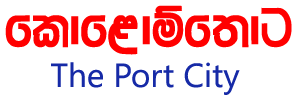Sri Lanka’s literacy rate is 91.1% (Census and Statistics), but is this an adequate reflection of the country’s literacy level? According to UNESCO, “beyond its conventional concept as a set of reading, writing and counting skills, literacy is now understood as a means of identification, understanding, interpretation, creation and communication in an increasingly digital, text-mediated, information-rich and fast-changing world.” What aspects are currently lacking when it comes to literacy in Sri Lanka? It is evident that even though Sri Lanka’s literacy rate is high, the skilled labour force in Sri Lanka may lack sufficient literacy to make full use of their skills. According to the Department of Census and Statistics, the estimated computer literacy rate is at an alarmingly low rate of 32.3%, and the digital literacy rate is 50.1%, for 2020. Hence, literacy needs to be addressed more holistically, especially during a crisis such as the COVID-19 pandemic, where people cannot miss out on life-saving information. Furthermore, the pandemic has caused many to rely on online teaching and learning methods and depend on digital platforms to sustain employment and livelihoods. Thus, this is an urgent call for action.
The UNESCO further states that “acquiring and improving literacy skills throughout life is an intrinsic part of the right to education.” So, how is literacy measured? And what are its implications on education? Speaking to Pulse, Teacher, Dinesh Muthugala stated that, “currently, a country’s literacy is measured by taking only the native language into account. It includes all of these three points: the ability to understand when spoken to in one’s native language, the ability to express oneself, and the ability to read and write. In addition, if one’s ability to read and write is low, it is a primary indicator of a low education level.”
According to Policy Analyst Dr. Sujata Gamage, “digital and media literacy is more relevant for today’s society.” She highlighted the importance of checking the information you receive for accuracy and credibility. For example, if you read something on Facebook, follow the advice and share it because you can read and understand it – that is just basic literacy, which is not enough for today’s society. She added that “when you receive some information, you need to search and check if it is true. You need to be able to search for knowledge and see what is relevant to the question. Search, select and evaluate for credibility.”
Dr. Gamage added that the high literacy rate “gives a false sense of accomplishment and security. The country needs to look at the many aspects of literacy, such as digital literacy, and media and information literacy.”
Muthugala added that “Sri Lanka is relatively low in Computer literacy and English literacy. On the other hand, we can be pretty satisfied with Sri Lanka’s native language literacy. In my opinion, English and Computer Literacy need attention and improvement.”
Consequences of an Illiterate Population
According to Muthugala, an illiterate population would have drastic implications for the future of Sri Lanka. “Firstly, it would seriously impact Sri Lanka’s productivity. Even though Sri Lanka has a satisfactory amount of human resources and a great job market, people cannot apply to various occupations due to the lack of native and English literacy. At this point, the country has failed due to the waste of human resources.”
He added that “one of the main challenges in our education system is the little money invested in education. For instance, children attend classes with pleasure when they have skilful teachers, a comfortable environment, computer labs and internet facilities. Why are teachers so willing to give tuition classes? Because their income is not sufficient. The country must invest more money to bring skilful teachers to educational institutions.”
What’s the Solution?
According to Muthugala, there will be a tremendous improvement in Sri Lanka’s literacy if we solve these financial restrictions. He added, “we must try and establish at least one computer unit in each school. Adaptive teaching and learning methods are also solutions to improve literacy, and the country must increase the money invested in education.”
Muthgala further stated that “as Sri Lankans, we must overcome the fear and shame of not speaking in English. Take any person in another country, even though they make mistakes in speaking, they don’t lose hope or feel shy to do their best. They understand that it isn’t their mother tongue.”
According to Dr. Sujata Gamage, “our current education system needs to go beyond basic literacy, as students aren’t exposed to critical, creative and collaborative ways of working. Although we have policies, the ability to implement these education policies should be there.”
She stated that “centralised/colloquial thinking is one of the main impediments to implementing these policies. The challenge is turning around the system. Especially the people at the top need to change their colloquial mindset.”
“Education is key to improving literacy, and it will be great if we can implement these policies,” Dr. Gamage added.
Teaching values in education is also crucial since it would be pointless if they lack good qualities regardless of their profession. Muthugala added that “as Sri Lankans, we have the skill and intelligence. However, teachers should change their teaching methods, and teachers must teach good human values to children to be successful.”
To develop as a country and improve literacy at all levels, we must invest in our education system and protect the children of tomorrow with a good quality education. We hope this piece will help raise the awareness of all those who are responsible and have dedicated their lives to the development of our next generation.
The post How Literate Are We? appeared first on Pulse.
Source From Pulse.lk
Author: Maneesha Delgoda
#SriLanka #News #lka




